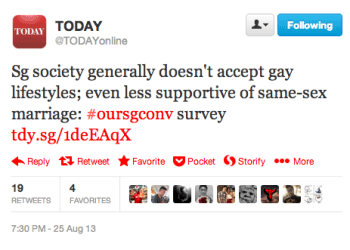It sounds great. It sounds like we’re going on to good things. Who doesn’t want to have sustainable dynamism?
Then you read the paper and realise that it’s really just more of the same. The emphasis on “economic growth” and growing the GDP at all costs. The words “home”, “heart” and “hope” are bolded and italicised (for extra, extra emphasis), but that comes across as more of a corporate ploy rather than sincerity.
I know a lot of work went into this paper. I know a lot of people were probably consulted in some shape or form, and that many civil servants have busted their butts for this report with the very best of intentions. But reading the paper didn’t make me feel more reassured or more confident of my country’s future. In fact, it pretty much had the opposite effect.
Firstly, we’re still obsessed over population growth, even though it has been described as “Ponzi demography”. We’re still overly fixated on the birth rate, as if we simply can’t accept that some people just don’t want kids, like, ever. We still refuse to look outside the box for solutions.
Secondly, we talk about foreign labour in the most disgusting terms. The White Paper writes,
Foreign workers help to create the right balance of skilled and less-skilled workers in the overall workforce. As Singaporeans upgrade themselves into higher-skilled jobs, more of the lower-skilled jobs will have to be done by foreigners.
Foreign workers also provide healthcare, eldercare and domestic services to support our ageing population and working families. They build infrastructure and housing, and do conservancy and maintenance work. They thus enable Singaporeans to enjoy good social and municipal services at a moderate cost, contributing to our quality of life.
Foreign workers enable businesses to expand quickly and flexibly during economic booms. They also buffer Singaporean workers from job losses during downturns.
Translation: “Foreigners will come and do the lower-skilled (read: really badly paid) jobs that we don’t want to do. They’ll also take care of our old parents and young children, and also build and clean our homes so we can live in beauty and comfort. They’ll help us grow the economy, up till the point where the economy goes bad, in which case we’ll fire and get rid of them first so we don’t get affected so much.”
To put it even more bluntly: we’re hiring servants. We’re hiring servants like we’re the masters of Downton bloody Abbey.
And all this while the costs keep going up and up and up. Singapore is now apparently the sixth most expensive city in the world to live in. A studio apartment down the road from my parents’ flat – a tiny space that tries to comfort you by labelling itself as “Soho living” – costs up to S$820,000, and buyers are expected to stump up the first S$20,000 in cash as a deposit. S$20,000 is at least two-thirds of my annual income, when I was working full-time in 2010 and 2011. (I’m currently not eligible to go for BTO flats, so I can only look at the rental or resale markets, both of which are kind of crazy.) Singaporeans are expect to work long, long hours (somehow we seem to believe this is “productivity”), yet the money doesn’t seem to match the effort put in. So we just keep working and worrying, worrying and working.
Everywhere we go, everything we read – this White Paper being an excellent example – we’re reminded that we’re merely cogs in the Great Singapore Economic Machine on a long march to meaningless wealth that never reaches the people who really need it. We’re told that we’re winning, only we don’t feel like we’re winning.
In moments like these, I find myself wondering, “Why am I even bothering? Do I really want to go home? Wouldn’t it just be so much easier to stay away, find somewhere less crowded, less stressful, less expensive?”
I miss home. I definitely do. I miss the people and the food and the familiarity of being back in my hometown (even if it’s a hometown where physical memories constantly get demolished). I do feel invested in things that are going on back home, which is why I’m still checking up on Singaporean news even from 9316.5 miles away.
But if going home means that I’ll be working harder for a lower quality of life in terms of work-life balance, if it means that I’ll be slogging like a pack horse towards the prospect of unattainable retirement, then is there still a point?
I’ll be 42 in 2030. What Singapore will it be then? Will I still be working ridiculous hours for not-very-much, worrying about a 50-year mortgage? Will my children (IF I have any, don’t get your hopes up, government people) be flattened under pointlessly difficult exams and assignments, taught to respect ‘model answers’ above philosophy, critical thinking and logic? Will we still be clinging on to empty values like meritocracy, values that were imposed on us and warped?
I know that at the end of the day this is just pessimistic rambling. A lot of this discussion is moot because there will be a part of me that’ll be stuck on Singapore as long as I have family and friends and people I care about living there. And beyond that I know that there is a lot about Singapore to love. There’s a lot to excite, to inspire and to motivate. I know I’m not done with Singapore yet, not by a long shot. But sometimes it just feels as if I’m tied to a country that not only doesn’t love me, but is out to get me.
This must be what being grown-up feels like. I’m not sure I like it.





![Alternative news sites and the mainstream global news agenda [MA Politics of Global Communications]](/wp-content/uploads/2019/07/BBVA-OpenMind-Ilustracion-Owen-futuro_comunicacion-politica_redes-sociales_Table-1-75x75.jpg)
